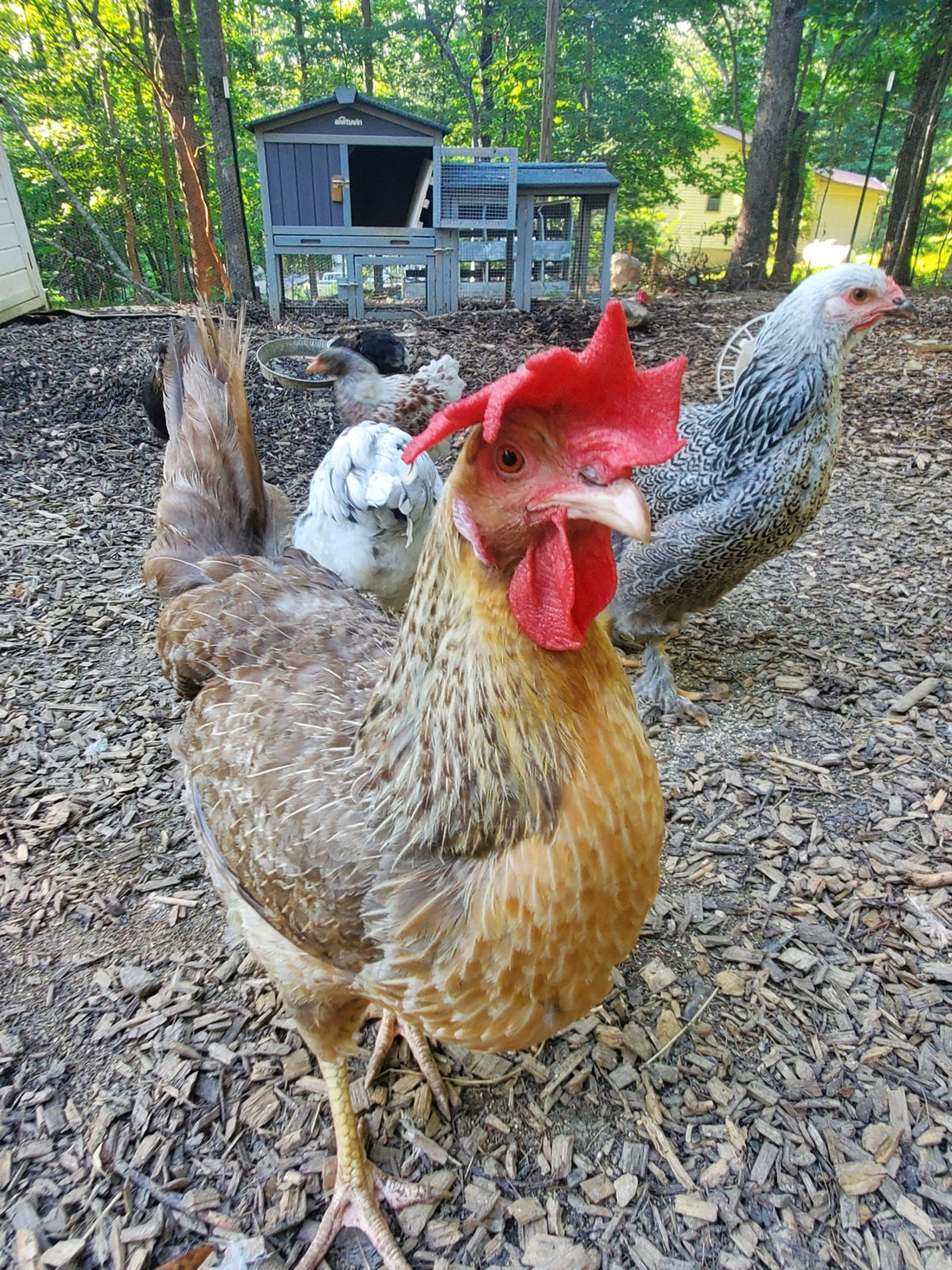As we cluck along on our chicken-keeping adventures, maintaining the health and well-being of our feathered friends is a top priority. Today, we'll dive deep into the world of chicken health, exploring common ailments, prevention strategies, and treatment options to ensure your flock remains in tip-top shape. So, grab your stethoscope and let's strut our way through the ins and outs of chicken health 101!
Common Chicken Ailments and Their Symptoms
Coccidiosis
Coccidiosis is a parasitic disease caused by the coccidia protozoa, which can wreak havoc on a chicken's digestive system. Symptoms include lethargy, loss of appetite, diarrhea (possibly with blood), and dehydration. Young birds and those with weakened immune systems are particularly susceptible.
Respiratory Infections
Chickens can fall victim to various respiratory infections, such as infectious bronchitis, avian influenza, and mycoplasma. Symptoms include sneezing, coughing, nasal discharge, wheezing, and difficulty breathing. These infections can spread rapidly through a flock, so early detection and intervention are crucial.
Bumblefoot
Bumblefoot is a bacterial infection that causes inflammation and swelling in a chicken's footpad, often resulting from a small cut or abrasion that becomes infected. Symptoms include limping, reluctance to walk, and a swollen, red footpad with a dark scab or pus.
Egg Bound
Egg binding occurs when a hen is unable to pass an egg due to factors such as stress, calcium deficiency, or obesity. Symptoms include straining, lethargy, loss of appetite, and a swollen abdomen. If left untreated, egg binding can be life-threatening.
Prevention Strategies for a Healthy Flock
Proper Nutrition
Feeding your chickens a well-balanced, age-appropriate diet is essential for maintaining their overall health and preventing various ailments. Ensure your flock receives the appropriate levels of protein, vitamins, and minerals, and supplement with calcium (e.g., crushed oyster shells) for strong eggshells and healthy bones.
Clean Living Conditions
A clean coop is a healthy coop! Regularly clean and sanitize your chicken coop, nesting boxes, and feeders to prevent the buildup of harmful bacteria and parasites. Provide fresh bedding and ensure proper ventilation to maintain a dry, well-aired environment.
Biosecurity Measures
Implementing biosecurity measures can help prevent the spread of disease within your flock and protect them from potential health threats. Establish a routine for cleaning and disinfecting shoes and equipment, isolate new birds before introducing them to the flock, and promptly quarantine any sick birds to minimize the risk of contagion.
Regular Health Checks
Perform routine health checks on your chickens to monitor for any signs of illness or injury. Early detection and intervention can be key to preventing the spread of disease and ensuring the well-being of your flock.
Treatment Strategies for Common Ailments
Coccidiosis
If you suspect coccidiosis in your flock, consult with a veterinarian who may prescribe a course of anticoccidial medication. To help prevent future outbreaks, maintain a clean and dry coop environment and consider adding a coccidiostat to your flock's feed.
Respiratory Infections
Treatment for respiratory infections depends on the specific pathogen causing the illness. Consult a veterinarian for proper diagnosis and treatment, which may include antibiotics or antiviral medications. Isolate affected birds and practice good biosecurity measures to prevent the spread of infection within your flock.
Bumblefoot
Early-stage bumblefoot can be treated with a combination of soaking the affected foot in a warm Epsom salt solution, applying an antiseptic ointment, and bandaging the foot to prevent further injury. For more advanced cases, consult a veterinarian who may need to surgically remove the infected tissue or prescribe antibiotics.
Egg Bound
To treat an egg-bound hen, first, try providing a warm bath and gently massaging the abdomen to help her pass the egg. If this doesn't work, consult a veterinarian immediately, as more invasive interventions may be necessary to save the hen's life.
Keeping our feathered friends happy and healthy is an essential part of responsible chicken-keeping. By familiarizing yourself with common chicken ailments and their symptoms, implementing preventative measures, and being prepared with treatment strategies, you can ensure that your flock thrives and continues to rule the roost. So, let's continue to cluck along, armed with our newfound knowledge, and embrace our roles as flock doctors for the health and well-being of our beloved birds!

